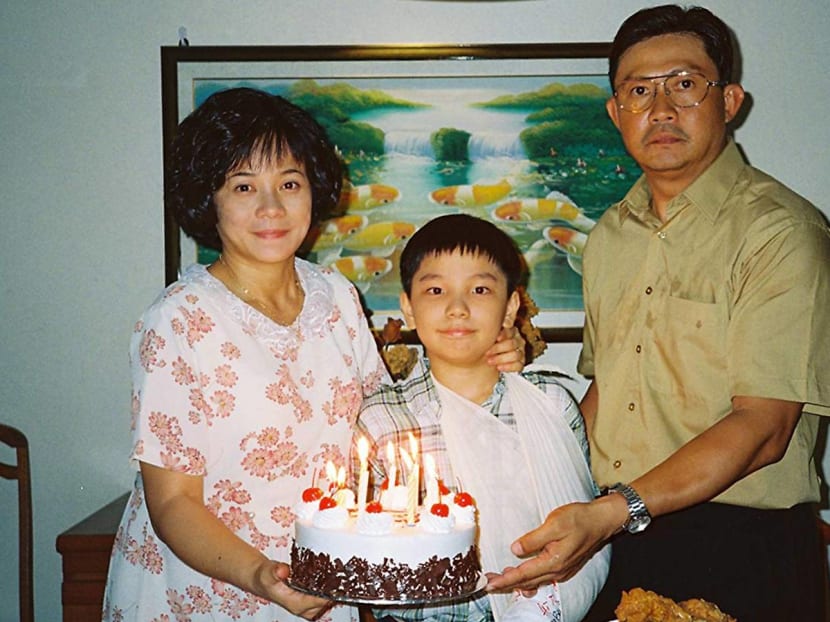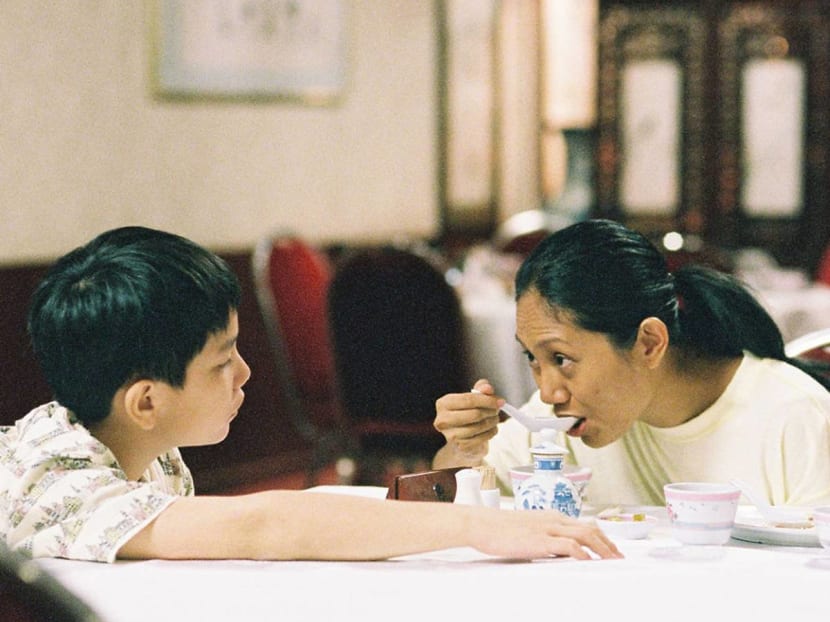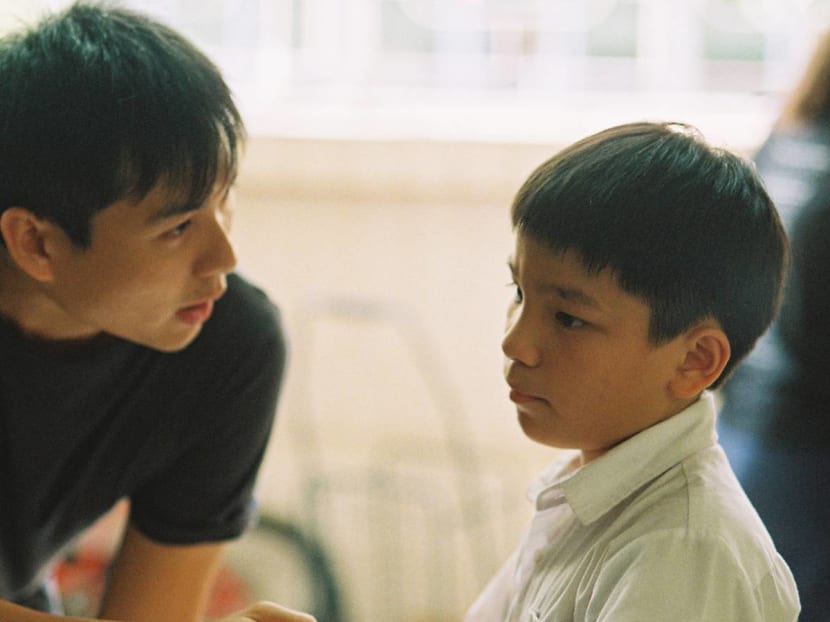8 DAYS’ First Interview With ‘Ilo Ilo’ Director Anthony Chen Before He Won Big At The Golden Horse Awards
Remember the time the award-winning filmmaker said he made the worst decision of his life working with kids? Welcome back to 2013.

Remember the time the award-winning filmmaker said he made the worst decision of his life working with kids? Welcome back to 2013.
With Ilo Ilo, airing on May 7 (Tue, Ch 5, 10pm) — as part of the ‘Lights. Camera. Singapore’ showcase — we look back at an early interview with the local director where he filmmaker reflected on his poignant Cannes-feted debut about a Filipino maid working 1990s Singapore, directing children, and being ‘lost’ in his own hometown. This story first appeared in issue 1194, Sept 5, 2013.
= = = = =
Anthony Chen is a little distracted. Just before our sit-down in the 8 DAYS photo studio, he’s on the phone, busy locking down the logistics of the gala premiere for his feature, Ilo Ilo, at Marina Bay Sands. (We can’t help but also overhear — sorry! — that he’ll be on BBC movie mag Talking Movies in October.)
He hangs up, catches his breath and is ready to chat about Ilo Ilo — again. Actually, he hasn’t stopped talking about it since it won the Camera d’Or (Golden Camera) Award for Best Debut Feature at the Cannes Film Festival in May.
For regular moviegoers, Chen, 29, is a rookie. For discerning cinephiles, however, he’s a veteran who cut his teeth making short films, which have won honours and accolades on the film fest circuit (his 2007 effort, Ah Ma, was cited for a Special Mention at Cannes). He debut feature, Ilo Ilo, is a semi-autobiographical drama about a pesky 12-year-old lad (newbie Koh Lia Ler) and his relationship with his estranged parents (Yeo Yann Yann and Chen Tianwen) and their Filipino domestic helper (Angeli Bayani) during the 1997 financial crisis. Three years in the making, the $700,000-movie is named after Chen’s real-life former maid’s home province in the Philippines.
When I tell Chen, a Ngee Ann Poly film grad, that Ilo Ilo reminded me of Ann Hui’s A Simple Life, another poignant portrait of a man (Andy Lau) and his servant (Deannie Yip), he flinches a bit. While Chen’s a fan of that Hongkong film (“You have to watch it in Cantonese… I took the bus to JB to watch it ̕cos I refused to watch the [Mandarin] dubbed version here”), he insists that Ilo Ilo is very different from it. “My story is about a foreign maid and is told from the perspective of a young boy,” he explains.
Elsewhere, the London-based auteur is also hesitant to call Ilo Ilo an autobiography. “It’s really inspired by my memories and observations growing up,” he says. Yes, he had a maid (more on that later), but no, he wasn’t a problem child like his protagonist. “I was a good boy [but] I wished I was a naughtier boy,” he says, self-deprecatingly. “Otherwise, I could be making more exciting films now.”
The interview has been edited and condensed. This story first appeared in issue 1194, Sept 5, 2013
Photos: Giraffe Pictures; Ealbert Ho (Main)

8 DAYS: There’s a showbiz adage: Never work with kids and animals. But here you are, working with kids in Ilo Ilo.
ANTHONY CHEN: That was the worst decision I’ve ever made. But I’ve had an affinity with kids ever since I worked with them on my short films. They’re hard to work with. They really test your patience. I’m really stubborn and [Koh Jia Ler] is stubborn as well. He was a non-actor and he didn’t know what the [filmmaking] rules were. Sometimes he insisted on doing things his way and I insisted on mine. There was always this urge to strangle each other, though not physically. It was a love-hate relationship.
Jia Ler is a natural. He’s comfortable doing nudity in the shower scenes.
That’s the thing about him — he isn’t self-conscious. Singaporean kids are generally very self-conscious and that was why out of 8,000 kids I saw over 10 months, I only found one. He was the only one who sparkled. When you gave him directions, he did it effortlessly. I actually changed his character’s name [to his real name] after I cast him. His name, Jia Ler, in Chinese means ‘Happy Family’, and I was making a film about an unhappy family struggling through a financial crisis. What a great irony, I thought.
What did you pick Chen Tianwen to play the father?
I met so many actors before him — current TV actors, theatre actors, actors who’ve retired, freelance actors, all kinds. I was looking for an actor who exuded this Singaporean fatherly quality and he had that. The irony was that when I cast him, he wasn’t married yet. For him, working on a film was a different experience as well. He wasn’t used to rehearsing. He was also used to what I called bad TV acting habits. Basically, I was stripping everything he thought he knew about acting over the years. For instance, a lot of times the expressions he would give were 10 times what I needed. That became melodramatic. What I’d do was strip it down; I wanted everything less. I didn’t want to see the anger — I wanted him to hold it inside his gut, not on his face.

I’m curious about a scene where one maid tells another don’t bother praying because “there is no room for God here.”
I don’t think [foreign workers] have been humanised here. It’s just a line to get people thinking. Which is why I didn’t go in and elaborate on that. This isn’t an exploitation film where maids are abused, raped and kicked out. It’s not about that. It’s a line for us to reflect on our actions.
Ilo Ilo has given the domestic helpers a voice.
We’ve been contacted by the Department of Foreign Affairs in the Philippines. They wanted to screen the film for the Filipinos working overseas at their year-end gatherings. I just came back from the Melbourne Film Festival and the Filipino members in the audience said they were very moved by it and they felt every one should see this film because it’s the first time their foreign workers are portrayed in a non-judgmental, non-patronising light.

Ilo Ilo’s success has helped reunite you with your former maid, the inspiration behind the movie. I read that you bought her a pig when you visited her in the Philippines.
The locals there gave her a pig. Obviously, I won’t know where to find one. We’re trying to see how we can help her [financially] in other ways. It isn’t about sending her money, but finding ways to help her bring in income. The whole thing has been very overwhelming for her as well. When we tracked her down, her first reaction was, “What do they want? I’m so old now, I can’t work.” The kind Filipinos who found her said to her, perhaps she once did something good for us, and now we want to give something back to her. Her reply? “I hope whatever they have, they have more.”
Your films tend to be about nostalgia.
I can’t make a film about contemporary Singapore because I’m trying to make sense of what that is. When I left Singapore [for the UK to do my Master’s degree], there wasn’t a casino, and when I came back two years later, I saw a UFO-like building from The Fullerton Hotel. I thought I was in Dubai. It’s been three years now and I’m still working out my bearings.

Are you game to make a genre movie?
I won’t pigeonhole myself. I’m excited by all kinds of cinema. I’m a huge fan of Kick-Ass. If I were to do an action flick, that would be it — something really subversive. I’m not interested in dramatic plot twists. I’m interested in the characters’ motivations. Can you have that in a genre film? Yes, you can. It’s just that you haven’t seen that here.






